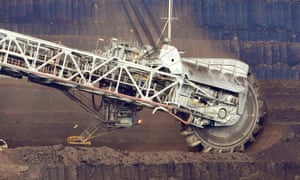
The decisions reached at the recent Coag energy council meeting are reminiscent of a long series of failures to understand the impacts of powerful business on the health of the community.
The failures extend historically from tobacco, to asbestos to the health scourges of coal, and now to the health and community impacts of the unconventional gas industry.
It is too much to believe that governments fail to understand the implications.
Just 30 years ago, Australia was awash with tobacco advertising and promotion by tobacco companies and their agents through multiple media outlets and sporting organisations, supported by newspaper editorials opposed to any restrictions.
Major political parties readily accepted large donations, and some individual politicians were not immune to personal gifts and favours. Tobacco lobbyists had ready access to legislators to ensure that measures to deal with the health consequences were thwarted.
While over 20,000 Australians were dying each year because of tobacco smoking, and children were being actively enticed into smoking addiction, their lives were valued less than an increasingly discredited industry. It remains a stain on governments of those days.
The tragedy of asbestos mining, transportation and usage in Australia is another cautionary tale still being played out. Mining continued, with active government support, well past the time when there was unequivocal medical evidence of lethal harm being caused by asbestos elsewhere in the world. Political intervention began far too late to prevent the deaths of thousands, with hundreds of distressing deaths still occurring.
Another cloud of preventable misery is gathering in our land and beyond our shores with the dangerous push to tolerate and expand coal mining and unconventional gas extraction. The reasons for political short-sightedness are similar to those that prevailed with tobacco and asbestos.
The fundamental reason has been the distortion of the political process that has enabled powerful commercial interests to buy political favours to crush health and environmental concerns and work against the wider public interest.
There are glaring examples where the mining industry has gained political favours through large direct and indirect donations to political parties and favours to individual public servants and legislators.
There also continues to be a revolving door of appointments from the mining sector to pivotal public service positions and political careers, and the reverse. The industry has had, and continues to have, extraordinary access to policy makers and legislators.
A report by the Australia Institute and the Australian Conservation Foundation an



